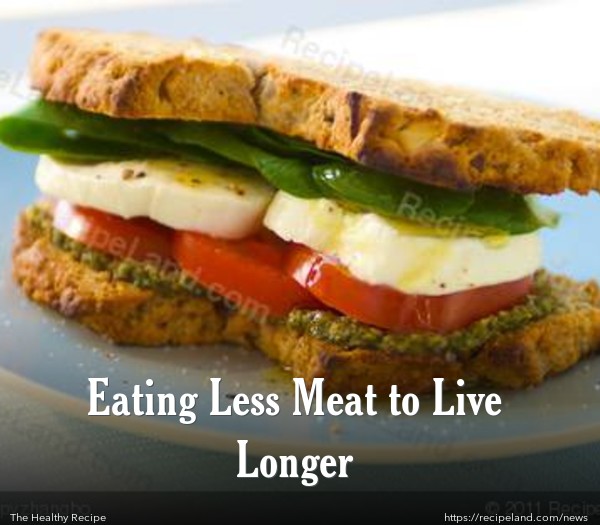A five year dietary study of over 70,000 people in California showed that meat eaters are more likely to die from diseases than vegetarians. Cancer is the only disease that did not show a difference in either group.
Researchers found that vegetarians had a reduced risk of diabetes and cardiovascular, endocrine and kidney diseases - they were also 12% less likely to die from these diseases. The study also showed that most of the vegetarians were generally older, more highly educated, exercised more regularly and were less likely to smoke or drink than meat-eaters.
Another study of over 40,000 people in the UK found that vegetarians’ risk of death or hospitalization from heart disease was lowered by over 30 percent. This study also showed that vegetarians had lower cholesterol and blood pressure than non-vegetarians.
While there are certainly other risks factors such as family history and other lifestyle choices, vegetarians do seem to have a healthier diet overall. But cutting back on meat and high-cholesterol animal products without giving up meat entirely can still have health benefits.
“Prudent plant-based dietary patterns which also allow small intakes of red meat, fish and dairy products have demonstrated significant improvements in health status as well.”(1)
Diets that are high in red meat and processed meats have been linked to much higher risks for cardiovascular disease and cancer – but lean meats and fish can provide valuable protein and nutrients in a balanced diet.
Researchers in the US have found that meat in moderation also reduces health risks. This study looked at vegan (no meat, eggs, dairy or other animal products), ovo-lacto vegetarian (people who consume eggs and dairy) and omnivore (people who eat meat and plant foods) diets.
They found that “both vegetarian diets and prudent diets allowing small amounts of red meat are associated with reduced risk of diseases, particularly coronary heart disease and type 2 diabetes.”(1)
This is good news for non-vegetarians – the occasional steak will not put you at higher risk for heart disease or diabetes. The key is meat in moderation.
Many of the health benefits of a vegetarian diet are likely due to greater amounts of fresh produce and fibre. A balanced diet, especially for meat eaters, should include plenty of vegetables, fruits and whole grains.
Instead of giving up meat entirely, consider substituting several meals each week with a vegetarian option. You don’t have to have an adventurous palate or be a gourmet chef to enjoy delicious, filling, meat-free meals. Try out comfort-foods like vegetarian lasagna or Mexican style casserole. You might just like these heart healthy veggie meals!
SOURCES: For more information and tips on maintaining a balanced vegetarian diet, visit the Dietitians Association of Australia at:https://daa.asn.au/for-the-public/smart-eating-for-you/nutrition-a-z/vegetarian-diets/
(1) McEvoy, C., Temple, N., & Woodside, J. (2012). Vegetarian diets, low-meat diets and health: a review. Public Health Nutrition, 15(12), 2287-2294.(2)/recipe/v/best-tvp-lasagna-52622; /recipe/v/chilaquiles-tortilla-casserole-50261;










Comments